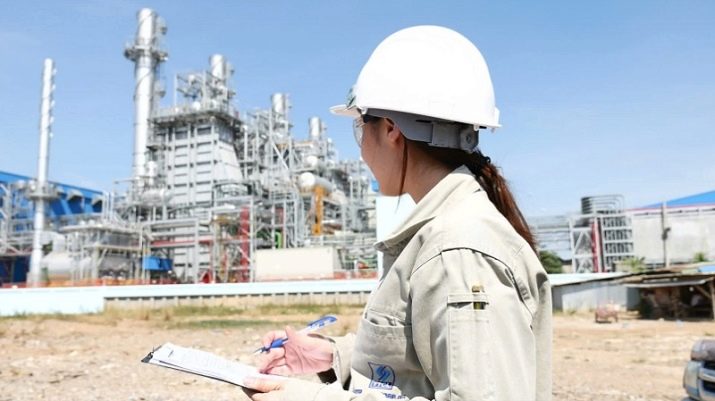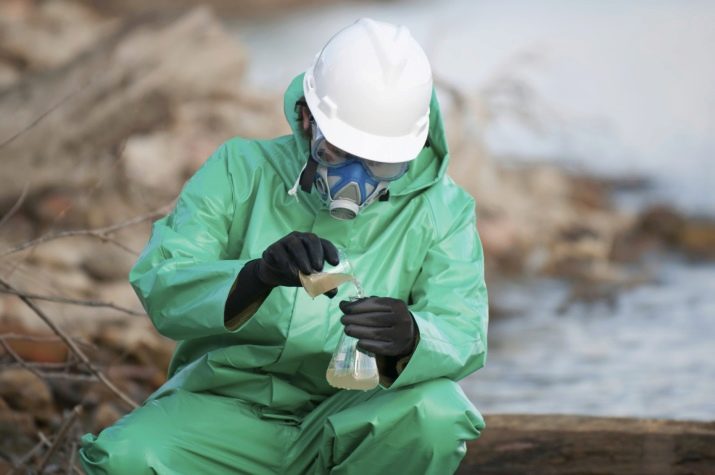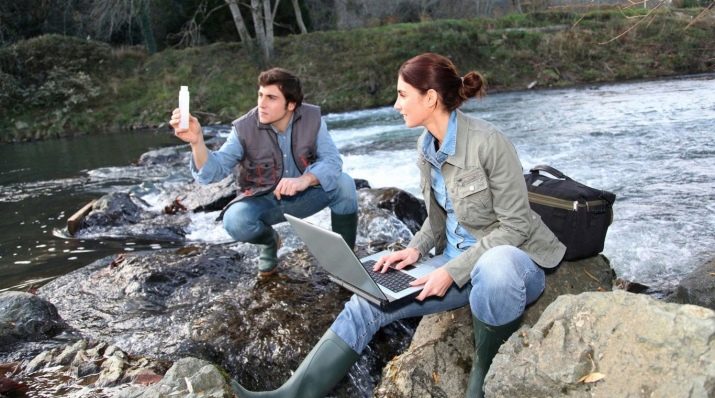All about the profession of environmental engineer

If you love the surrounding nature and care about its condition, and also have a penchant for mastering the natural sciences, then you should pay attention to the profession of "environmental engineer". In connection with the development of industry and technology, such professionals are becoming more and more in demand in modern society. Today we will talk about what is the responsibility of an ecologist, what a highly qualified specialist should know and be able to do.
Peculiarities
An environmental engineer is a specialist whose job is to protect and restore the environment. The profession is suitable for those young people who are interested in disciplines such as biology and geography. An environmental engineer operates on the basis of such documents as a professional standard and a unified qualification and tariff reference book of workers' jobs and professions (or ECTS).
Depending on the size of the enterprise where the specialist works, he can be the only and leading environmentalist, or work in a team. Like any other professional activity, the work of an environmental engineer is characterized by positive and negative features.
If you are thinking about connecting your life with this career, then you should carefully weigh and evaluate all the advantages and disadvantages so that you will not regret your choice in the future.

It is customary to attribute the following characteristics to the advantages of the profession.
- Moral satisfaction... An environmental engineer is a person whose work is important not only for himself, his family or those closest to him. The specialist has a positive impact on the life of all inhabitants of the planet.Accordingly, performing his duties with high quality and competently, the ecologist feels sincere moral satisfaction.
- High demand... Global warming, industrial development and anthropological pollution of the environment are what we hear about every day. In such conditions, specialists such as environmental engineers are indispensable and valuable workers who are in high demand in the labor market.
- Decent earnings... Qualified environmental engineers with a large number of specialized skills, knowledge and skills, as well as having at least minimal work experience, receive a fairly high remuneration for their work and can maintain a high standard of living.
- Relevance in the international market... Environmentalists are specialists who are in demand not only in our country, but also far beyond its borders. Thus, you can cooperate with international companies or even move abroad. At the same time, one should not forget about the disadvantages of the profession.
- Work in extreme conditions... The main part of the environmental engineer's working time is spent not in the office space, but in nature. In this regard, there is no comfort whatsoever. The specialist spends a lot of time on his feet.
- Health hazard. Environmental engineers, in the course of their professional duties, very often interact with various kinds of harmful substances. In addition, a specialist may be sent on a business trip to an unfavorable area. Such working conditions can adversely affect the health of the employee. As we can see, the advantages of the profession far outweigh the disadvantages. However, some people consider the disadvantages so serious that they abandon such a career. One way or another, but the choice is yours.

Responsibilities
A professional environmental engineer carries out his functional duties strictly in accordance with the job description. Generally speaking, this document is typical. However, many employers supplement and adjust the tasks and functions that a person holding the position of an ecologist does, depending on the specifics of the enterprise. Today we will talk in more detail about what a specialist does on a daily basis.
The duties of an environmental engineer include:
- preparation of documentation and passports for various types of waste;
- carrying out licensed work;
- analysis of emissions of harmful substances into the environment (their nature, quantity, etc.);
- checking the correct operation and functioning of various equipment that contributes to harmful emissions;
- conducting regular inspections of various activities;
- compliance with the required environmental standards;
- monitoring of the state of the environment in the entrusted area;
- development and implementation of measures aimed at protecting and protecting the environment;
- conducting educational events;
- preparation of methodological documentation, instructions and guidelines.
Please be aware that the above list is not definitive or universal. Each individual employer may have individual requirements for the environmental engineer, so you need to be able to adapt to changing conditions.

Knowledge and skills
To achieve the heights of professional excellence, an ecologist must be theoretically and practically grounded. He must constantly read specialized literature, improve his intellectual level and increase the amount of available knowledge. Practical skills of a specialist are of no less importance.
So, if we speak in detail about the knowledge and skills that will be useful to the ecologist in the process of carrying out his professional tasks, then it should be said about the need perfect knowledge of the process of mastering and implementing international ISO standards. Every self-respecting specialist should be well acquainted with the ISO 14000 standard, which is the main one in the framework of environmental protection. In addition, an employee of the environmental department must know all the methods and principles of environmental expertise, as well as be able to apply them in practice.
Knowledge of the legal and regulatory framework is essential. Also, a specialist must know the basics of document flow. In addition, an advantage for a specialist will be knowledge and ability to use specialized computer programs, as well as narrow-profile databases.

Requirements
In addition to requirements for professional characteristics and properties, many employers put forward requirements for the personal characteristics of a specialist. So, employers want to see such qualities in environmental engineers:
- ability for analytical thinking;
- sociability;
- good memory;
- attention to detail;
- a responsibility;
- love of nature;
- willingness to work in a variety of conditions.
The combination of the necessary professional and personal characteristics will make you an irreplaceable specialist who will be in high demand in the labor market.

Education
To become an environmental engineer you need to graduate higher educational institution in the relevant specialty. Today, a large number of Russian universities offer applicants such a direction of training. After you have chosen a specific university, you need to visit its admissions office and clarify what subjects you need to take on the exam, whether there are entrance exams. Depending on the level of training you have chosen and the specific program, the term of study can be from 4 to 6 years (or more). If you already have a basic higher education, then you it is enough to undergo retraining. For this, special professional retraining courses are suitable.
Where does it work?
Graduates of environmental faculties of higher educational institutions of Russia can work in a wide variety of enterprises (both public and private). For example, the positions of environmental engineer are present in departments such as Rostekhnadzor, Federal Service for Hydrometeorology and Monitoring, Rosprirodnadzor, etc. Thus, a specialist in environmental safety is needed almost everywhere. At the beginning of his career, an ecologist may apply for a starting position with a fairly low salary (for example, a technical assistant). However, as you gain experience and new knowledge, as well as improve your practical skills a specialist can climb the career ladder. A leading environmentalist of a large enterprise earns about 100,000 rubles.









